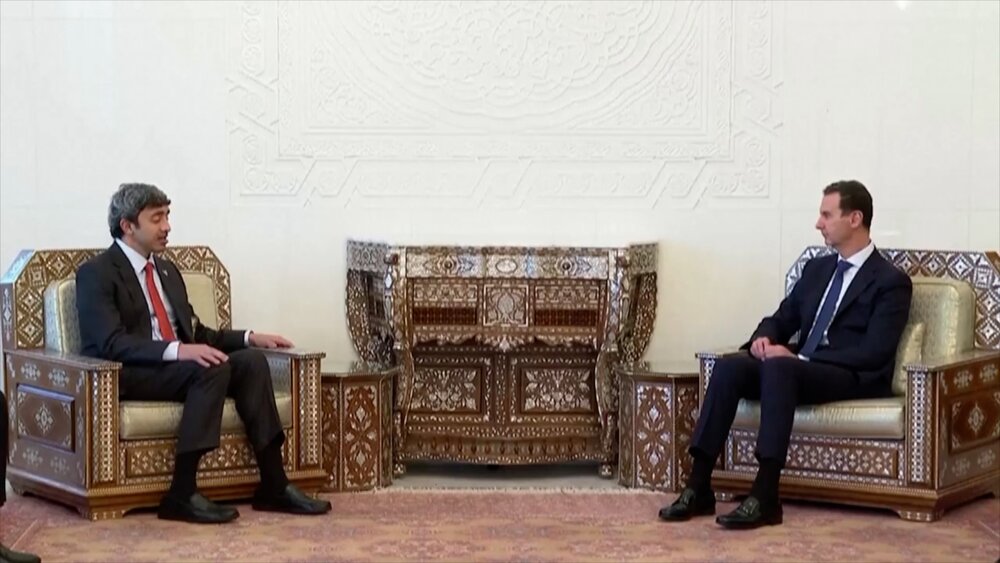UAE minister makes landmark trip to Damascus

TEHRAN - In yet another sign of improving relations between the Syrian government and U.S. Arab allies in West Asia, the United Arab Emirates’ foreign minister has met with President Bashar al-Assad in Damascus. The same Persian Gulf Kingdom that is widely believed to have supported foreign backed militants ten years ago who tried but failed to overthrow the government.
Foreign Minister Sheikh Abdullah bin Zayed is the most senior Emirati dignitary to visit Syria in the decade since the eruption the war in which several Arab states backed the militants fighting the Syrian Arab Army.
Washington has expressed its unease about the move by its ally the UAE. State Department spokesperson Ned Price told a press briefing "we are concerned by reports of this meeting and the signal it sends... as we've said before, this administration will not express any support for efforts to normalize or to rehabilitate Bashar al-Assad”
According to a statement by the Syrian presidency, the foreign minister led a delegation of senior Emirati officials that discussed bilateral relations and cooperation in a meeting with Syrian counterparts.
UAE's state news agency WAM also said the meeting explored "new horizons for this cooperation, especially in vital sectors in order to strengthen investment partnerships in these sectors” Sheikh Abdullah underlined in his meeting with Assad "UAE's keenness on the security, stability and unity of Syria”.
WAM reported he also emphasized the "UAE's support for all efforts made to end the Syrian crisis, consolidate stability in the country, and meet the aspirations of the brotherly Syrian people”.
UAE senior official Anwar Gargash, diplomatic adviser to the Emirates president, wrote on social media that "the UAE continues to build bridges, boost relationships, and connect what was cut off... and will be keen to spare the region further congestion and continuous conflicts."
The UAE has been at the forefront of efforts by some Arab states to normalize ties with Damascus. Earlier this year Abu Dhabi called for Syria to be readmitted to the Arab League. It also reopened its embassy in Damascus three years ago.
Last month, King Abdullah of Jordan spoke to Assad for the first time in a decade, and the border between the countries was reopened for trade. The Egyptian foreign minister also met his Syrian counterpart in September, the highest level contact between the countries in a decade.
Experts say a shift is under way in West Asia, where Arab allies of the United States are reviving economic and diplomatic ties with Damascus.
It also marks a shift from the early years of the war when Syria was expelled from the Arab League. The next Arab League summit in Algeria in March is expected to discuss restoring Syria's membership, which has been frozen since 2011.
The biggest message all this sends is that Syria has emerged victorious despite ten years of terrorism and the Arab nations that froze ties with Damascus has realized this fact. Following the U.S. abandonment of the former Afghan government, perhaps U.S. allies in West Asia are starting to reshape their foreign policy to one that is less dependent on Washington’s orders.
